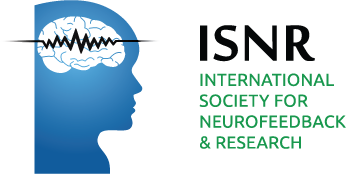
I am sometimes asked if there are research articles supporting neurofeedback treatment for depression; some articles are listed below. An advantage is that medication side-effects can be avoided, and the training of the brain physiology tends to be permanent. If you know of additions or corrections, please e mail me at nurosvcs@aol.com. Dr. Thomas. Articles […]

Overview Depression is one of the most common psychiatric disorders. Symptoms include sad mood and disinterest, as well as physiological and cognitive changes. Sometimes, depression may resemble symptoms of dementia. Therefore, a thorough neuropsychological assessment is useful for some cases to disentangle these potential clinical issues. Depression treatment is commonly done with medications and psychotherapy […]

Nonverbal Learning Disorder Overview Nonverbal learning disability (NLD) refers to a learning disorder that is characterized by deficits in visual-spatial organization and processing that significantly interferes with academic and social functioning (1). A specific neuropsychological profile of strengths and weaknesses typically associated with NLD has been identified. While the presence of certain subgroups within NLD […]

ISNR Whitepaper: About Neurofeedback. This white paper from the main Neurofeedback professional organization, ISNR.org, give a detailed review of the literature of using neurofeedback for Attention Deficit/Hyperactivity Disorder (ADHD). A number of studies are briefly summarized giving evidence that this modality of treatment can be beneficial for ADHD such that the need for medication can […]

William’s syndrome (WMS) is a rare genetic disorder caused by the deletion of a specific chromosome region resulting in the absence of 26 to 28 genes (1). Core features of WMS include below-average overall intellectual ability, cardiovascular issues, and facial dysmorphology (2). Given its unique genetic basis, WMS has been widely studied in order to […]
Epilepsy is a neurological condition that is characterized by a wide variety of symptoms and subtypes. The International League Against Epilepsy (ILAE) is an organization that is responsible for defining many important diagnostic and clinical classifications of the disorder. In 2017, the ILAE published revised criteria for various seizure types organized under focal, generalized, and […]
Mitochondrial disorders consist of a heterogeneous group of conditions arising from inherited mutations to mitochondrial DNA. These disorders are now known as some of the most common genetic diseases, with a prevalence rate conservatively estimated at 1 in 5,000 (1). Both physical and cognitive symptoms are common, with clinical presentations differing significantly by subtype. These […]

Overview Tourette syndrome (aka Gilles de la Tourette) is a tic disorder that consists of motor and vocal tics, as well as associated sensory and cognitive premonitory urges. The disorder typically onsets during childhood, and many people eventually outgrow their tics. There is no evidence of cognitive impairment in individuals with only Tourette syndrome. However, […]

Overview Tourette syndrome (TS) is a neurological disorder that is characterized by repetitive, involuntary tics that may appear in the form of vocalizations or other motor movements. Neurofeedback has been suggested as an alternative treatment for TS, and recent evidence supports its viability as a beneficial therapeutic option. Neurofeedback for Tourette syndrome Research suggests that […]

Anxiety – Complementary and Alternate Medicine. Anxiety is a common psychological disorder that affects a large proportion of both adults and children, and is significantly disruptive to quality of life. While primary treatment options often include medication, adverse side effects have led to an increased use of alternative treatments. Individuals with anxiety have been shown […]






